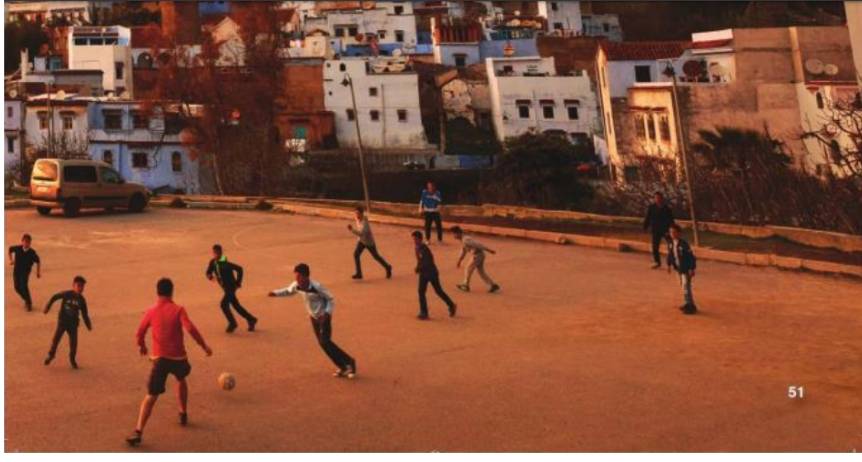Hãy nhập câu hỏi của bạn vào đây, nếu là tài khoản VIP, bạn sẽ được ưu tiên trả lời.

1. My hobby is playing table tennis. I like it because it is a good sport. I can make new friends and improve my health when I go to the table tennis club.
(Sở thích của tôi là chơi bóng bàn. Tôi thích nó vì nó là một môn thể thao thú vị. Tôi có thể kết bạn mới và cải thiện sức khỏe của mình khi đến câu lạc bộ bóng bàn.)
2.
A: What is your hobby?
B: My hobby is playing table tennis.
A: Why do you like it?
B: I like it because it is a good sport. And I can make new friends and improve my health when I go to the table tennis club.

1. This sport is football. I really like it.
2. I usually play table tennis. I usually play table tennis in the sports centre.
1.football.and this is one of my favourite sport.
2.I like playing football alot,so I usually play it with my friends at the football field.

Talking about an invention (Nói về một phát minh)
Introduction: (Giới thiệu)
It is the Internet. (Đó là Internet.)
Development: (Sự phát triển)
- The Internet is used to communicate over long distances. People access to the Internet and use many websites to interact with others like Facebook, Instagram, Skype,…
(Internet được sử dụng để liên lạc trên một khoảng cách xa. Mọi người truy cập Internet và sử dụng nhiều trang web để tương tác với những người khác như Facebook, Instagram, Skype,…)
- I use the Internet every day. I use it at school and at home. The Internet helps me manage difficult task and assist me to find solutions quickly. At home, it provides me entertainment with online music, games and movies,…
(Tôi sử dụng Internet hàng ngày. Tôi sử dụng nó ở trường và ở nhà. Internet giúp tôi quản lý công việc khó khăn và hỗ trợ tôi tìm ra đáp án nhanh chóng. Ở nhà, nó cung cấp cho tôi giải trí với âm nhạc trực tuyến, trò chơi và phim,…)
Conclusion: (Kết luận)
I like using the Internet. I think Internet is very important in our daily life. It makes our lives easier and more convenient.
(Tôi thích sử dụng Internet. Tôi nghĩ rằng Internet rất quan trọng trong cuộc sống hàng ngày của chúng ta. Nó làm cho cuộc sống của chúng tôi dễ dàng hơn và thuận tiện hơn.)

I would talk to one of the company’s representatives and ask for repairing or replacement.
(Tôi sẽ nói chuyện với một trong những đại diện của công ty và yêu cầu sửa chữa hoặc thay thế.)

I tidy my room. It’s OK. (Tôi dọn dẹp phòng của mình. Việc đó bình thường.)
I hate dusting the furniture. (Tôi ghét phủi bụi đồ đạc/ nội thất.)

1. They are doing a haka, a traditional dance and chant. They are using their bodies, hands and legs to communicate.
(Họ đang thực hiện một haka, một điệu nhảy truyền thống và hát theo nhịp. Họ đang sử dụng cơ thể, tay và chân để giao tiếp.)
2. I use languages, facial expressions and eye contact to communicate with my family and friends.
(Tôi sử dụng ngôn ngữ, biểu cảm khuôn mặt và giao tiếp bằng mắt để giao tiếp với gia đình và bạn bè.)

1)History was my favourite subject in my academic year and I have learned so many things from the history books I read and learned from teachers related to history and they were so interesting that I later did my graduation majoring History.
Learning about the past history is something that gives us real knowledge about our country, the world and about the human race. I read History in my grade 7 and found it very interesting. This subject taught us about the past of your world, how the social and economic condition was and how the world has been shaped by the different events throughout the time. After that, I become so interested in this subject that I started reading books on History from different writers. There is a famous saying that "to shape the future you must know the past" and history teaches us that. I had been lucky to have some great teachers who have a tremendous way of explaining the topics of History. To me, other subjects like literature and Math were also interesting but I felt a different passion on History.
After I finished my school, I took History as my major and that has greatly influenced me the way I look at the world and to the past and future. Reading and learning history was like travelling through time and generations that excited me so much.
2)Would your students benefit from participation in a study group? Are you too busy to organize and supervise study groups for students in your courses? I’m guessing the answer to both questions is yes. If so, here are some ways teachers can encourage and support student efforts to study together without being “in charge” of the study groups.
Promote study groups – First, include a list of reasons why students should join study groups in the syllabus or on the course website. Maybe there’s a short podcast available in which you talk about the usefulness of study groups. Better yet, if you’ve got some students who studied together in a previous course, ask them to make some comments about their experiences. Second, talk regularly in class about study groups. You can repeat all the benefits, suggest activities that involve good group study strategies, or propose some things they could study together (like problems they could solve, questions they could discuss). You also can solicit feedback from study groups in class or mention content you discussed with a group during office hours.
Make study groups an option – Encourage students to organize their own groups, but offer to help with the process. Nudge them with reminders, such as “Send me an email if you’re interested in being part of a study group.” Have study groups “register” their members, and then report on meeting times and activities. Suggest study activities for the group (ideas like those offered in the next item). Invite the group to meet with you during office hours or to send questions electronically. Offer registered study groups that report regular meetings a bonus point incentive depending on the average of their individual test grades. Let all students know that joining a study group is an option throughout the course.
Demonstrate the value of a study group – Too often when students study together, it’s pretty much a waste of time. If they’re reviewing for a test, they talk about how it can’t possibly be that hard and thereby relieve themselves of the need to study. Or they “go over” their notes, reading what they’ve written but never with any discussion. Group studying is too often accompanied by eating, texting, and regular side conversations.
In order for students to get the most value from their study sessions, you’ll need to help them come up with a different set of strategies. You can do so by holding a review session and asking students to form potential study groups (it’s up to them if they want to meet as a group more often). Give the groups tasks like these: 1) For three minutes everybody reviews their notes and lists five things they think will be on the test and then for five minutes they share lists and create a group list of the items most often mentioned. During the exam debrief, students revisit their list of things they expected to see on the exam. Were those things on the exam? 2) Everybody takes three minutes and writes a question about some content they don’t understand or wish they understood better. The group devotes a specified amount of time to each question, looking for relevant content in their notes and the text. 3) The group has 20 minutes to make one crib sheet that everyone in that group can use during the exam.
Offer proof that study groups improve performance – Compare the scores, points, or grades of those working in study groups with those who aren’t. These are data which should be collected across several sections of the course.
Define study groups broadly – Students tend to think of study groups for exam preparation, but that isn’t the only kind of student collaboration that promotes learning. If there are regularly assigned readings for the course, students can get together to discuss the reading. Again you might let them do this first in class with a good set of prompts so they see how dialogue can enrich and deepen their understanding of the assigned material. Readings are easily discussed in virtual environments, which means the group doesn’t have to find a time when everybody can meet. If various writing assignments are required in the course, students can form peer editing groups. Rubrics, checklists, and prompts can help them get beyond superficial feedback (“you might need a comma here”) to the kind of helpful critique that improves the writing.
I usually get up at 5:30 in the morning. After washing my face and brushing my teeth, I do morning exercises for fifteen minutes. Then I have breakfast with Mum and Dad at 6:15 and leave home for school at 6:30. My classes start at 7:00 and end at 11:15. After that I go home, and have lunch with my family at 12:00. After lunch I usually have a short rest. I study my lessons , read books, and do homework from 1:30 p.m. to 4:00 p.m. I often play badminton with my friends on the ground at 4:30. I come back home and have dinner at 6:00 p.m. After dinner, I often watch the news on TV for thirty minutes. Then I prepare for the new lessons and go to bed at 10:30 p.m


1. Why don't you sign up an Instagram account? I think you'll enjoy sharing your daily stories with your friends. It'll be great fun. Most of our classmates have already joined.
(Sao bạn không đăng ký tài khoản Instagram đi? Tôi nghĩ bạn sẽ thích việc chia sẻ câu chuyện hàng ngày của mình với bạn bè. Sẽ thật là vui. Nhiều bạn bè lớp mình cũng dùng đó.)
2. I had a nice surprise. It was so kind of you to send me a new desktop as a birthday present. I really enjoyed the large screen of it.
(Cháu đã rất bất ngờ. Bác thật tốt khi gửi tặng cháu món quà sinh nhật là một chiếc máy tính để bàn. Cháu cực kỳ thích màn hình siêu rộng của nó.)